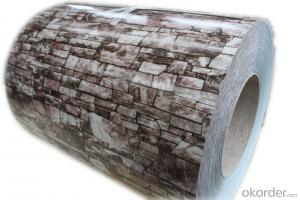Color Coator Aluminium Coil for ACP Walls
- Loading Port:
- Shanghai
- Payment Terms:
- TT OR LC
- Min Order Qty:
- 5 m.t.
- Supply Capability:
- 10000 m.t./month
OKorder Service Pledge
OKorder Financial Service
You Might Also Like
Item specifice
1. Structure of Color Coator Aluminium Coil for ACP Walls Description
• Product: Aluminim coils
• Application:
corrugated roofs, outer walls, ovens, electrically controlled cabinets.
household appliances, transportation, base plate, color coating.
industrial freezers in the residential and industrial buildings.
refrigerator backplane, gas stove, air conditioner, microwave, LCD border.
• Advantage: Full production line with all kinds of coils supply
2. Main Features of the Color Coator Aluminium Coil for ACP Walls
• Our goods quality is top, the surface is smooth, and every steel coil
• No Joint, No Bends, no spots, no roller marks.
• MTC will be provided with goods, third part inspection is acceptable, for example, SGS, BV. Etc
3. Color Coator Aluminium Coil for ACP Walls Images
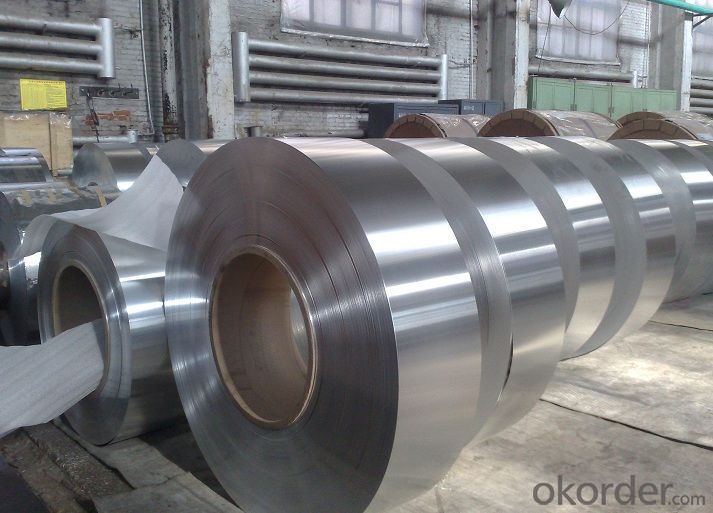
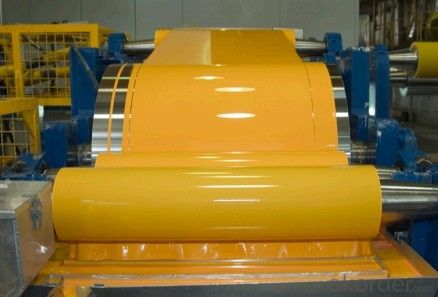
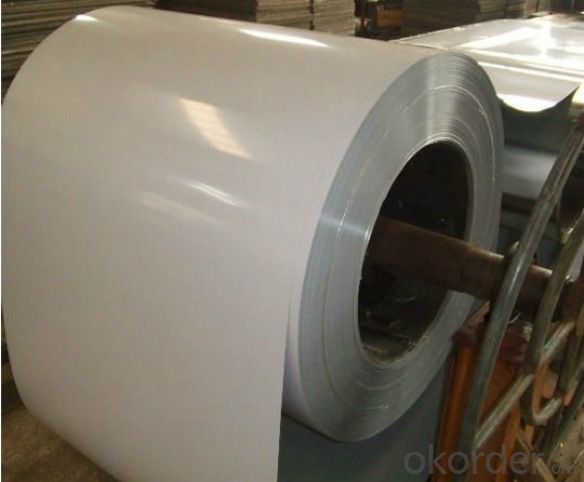
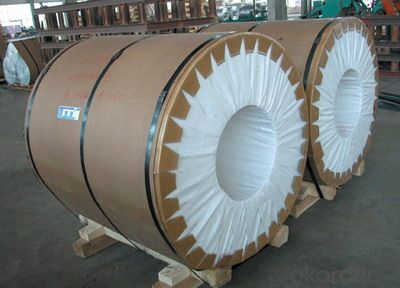
4. Color Coator Aluminium Coil for ACP Walls Specification
Alloy | AA1050/1100/3003/3005/3105/5005/5052 etc |
Thickness | 0.03mm—4.0mm |
Width | 10mm—1600mm |
Coating | PVDF, PE |
Coatingthickness | Usually16-25 micron, could be 33-40 micron |
Color | According to Ral |
Standard | ASTM-B 209 GB/3008-2006 |
Usage/ApplicationsCoated Aluminum Coil/Sheet | Constructionand decoration, electronic appliances, lighting decoration, air-condition airpipe, sandwich panels and drainage, etc |
5.FAQ of Color Coator Aluminium Coil for ACP Walls
We have organized several common questions for our clients,may help you sincerely:
① How about your company?
A world class manufacturer & supplier of aluminum coil and alloy blanks. Aluminum production base is comprised of 18 aluminum annealers, 10 coil and foil mills, 4 continuous production lines, 2 hot rolling production line and 3 prepainted lines.
Export 5000 tons per month to Asia, America and Middle East. Always do the best for our clients.
②Can you guarantee the quality of the products?
We are responsible for the quality of materials to get a long-term cooperation with clients in a reasonable period of time and we are glad to arrange and coordinate any third party inspection for you.
③What is the delivery time after purchase?
35 day after receiving client’s deposit or correct LC
- Q:What are the common industry standards for aluminum coil specifications?
- Various organizations, such as the Aluminum Association (AA) and the American Society for Testing and Materials (ASTM), establish the common industry standards for aluminum coil specifications. These standards guarantee consistency and uniformity in the manufacturing and utilization of aluminum coils in different industries. The Aluminum Association (AA) is responsible for defining the standards for aluminum alloys and their corresponding temper designations. By classifying aluminum alloys based on their chemical composition and mechanical properties, the AA enables manufacturers to produce coils with specific characteristics suitable for different applications. For instance, AA 3003 is commonly utilized for general-purpose coils, while AA 5052 is preferred in marine applications due to its superior corrosion resistance. Aside from alloy classification, the AA also provides guidelines regarding coil dimensions, tolerances, and surface finishes. These specifications ensure that aluminum coils adhere to the required dimensions and quality standards, facilitating their integration into various manufacturing processes. The American Society for Testing and Materials (ASTM) also holds a significant role in establishing standards for aluminum coil specifications. ASTM offers guidelines for different tests and procedures to assess the quality and performance of aluminum coils. These tests encompass mechanical property evaluations, such as tensile strength and elongation, as well as assessments of surface finish, corrosion resistance, and dimensional stability. Furthermore, specific industries may have their own set of standards for aluminum coils used in their applications. For instance, the automotive industry could have industry-specific standards to ensure compliance with particular performance requirements in vehicle manufacturing. In conclusion, the common industry standards for aluminum coil specifications cover alloy designation, dimensional tolerances, surface finishes, and mechanical properties. Adhering to these standards guarantees consistency, quality, and compatibility across diverse industries and applications.
- Q:Can aluminum coils be used in roofing or cladding systems?
- Indeed, roofing and cladding systems can make use of aluminum coils. The lightweight characteristic and exceptional resistance to corrosion make aluminum a favored option for these purposes. In order to produce a sturdy and enduring solution, it is commonplace to employ aluminum coils in roofing and cladding systems. These coils are frequently coated with a shielding layer or finishing touch to augment both performance and aesthetics. Additionally, the ease of working with aluminum coils ensures that installation and maintenance are hassle-free. In conclusion, aluminum coils prove to be a fitting choice for roofing or cladding systems, as they provide numerous benefits and fulfill the demands of these applications.
- Q:Can aluminum coils be used for food storage containers?
- Indeed, food storage containers can be made from aluminum coils. Aluminum is widely chosen as a material for such containers because of its numerous advantageous qualities. Notably, it is lightweight, sturdy, and possesses exceptional thermal conductivity, enabling it to distribute heat evenly for effective cooking or cooling purposes. Moreover, aluminum is non-toxic, devoid of odor, and resistant to corrosion, rendering it a secure option for food storage. Additionally, it acts as a proficient shield against light, moisture, and oxygen, thereby assisting in maintaining the freshness and quality of the stored food. All in all, opting for aluminum coils for food storage containers can be a dependable and practical decision.
- Q:How are aluminum coils tested for surface roughness?
- Aluminum coils are tested for surface roughness using various methods to ensure they meet the required quality standards. One commonly used method is the use of a surface roughness tester or profilometer. This instrument measures the roughness of the coil surface by running a stylus or probe across the surface and recording the variations in height. The surface roughness tester provides data such as Ra (average roughness), Rz (average peak-to-valley roughness), and Rt (total height roughness). These parameters help assess the surface quality of the aluminum coil and determine if it meets the desired specifications. Additionally, visual inspection is often conducted to detect any visible defects, scratches, or irregularities on the surface. This inspection can be done manually by trained operators or with the assistance of automated systems that use cameras and image analysis algorithms to detect imperfections. Another method used to evaluate surface roughness is the use of laser scanners. These scanners emit laser beams that reflect off the surface of the aluminum coil and are then measured to determine the surface profile and roughness. Laser scanners provide high-resolution, non-contact measurements, making them highly accurate and efficient for assessing surface roughness. Overall, a combination of surface roughness testers, visual inspection, and laser scanners are commonly employed to test the surface roughness of aluminum coils, ensuring they meet the required quality standards for various applications.
- Q:Can aluminum coils be used for electrical transmission lines?
- Aluminum coils find common use in electrical transmission lines due to their numerous advantages. Firstly, aluminum, being a lightweight material, facilitates easier and more cost-effective transportation and installation. Secondly, aluminum exhibits good electrical conductivity, comparable to that of copper. Thirdly, aluminum proves to be a more economical choice for long-distance transmission lines, as it is less expensive than copper. Nonetheless, there are certain challenges associated with employing aluminum coils in transmission lines. Notably, aluminum possesses a lower tensile strength than copper, rendering it more susceptible to sagging over extended distances. Moreover, aluminum boasts a higher thermal expansion coefficient than copper, potentially giving rise to complications related to thermal expansion and contraction. Nevertheless, through proper design and engineering, aluminum coils can be effectively and efficiently utilized in electrical transmission lines.
- Q:How do aluminum coils compare to other metal coils in terms of cost?
- Aluminum coils are generally more cost-effective compared to other metal coils. This is primarily due to the abundance of aluminum as a raw material and the relatively low cost of extraction and production processes. Additionally, aluminum coils offer a lightweight and durable solution, reducing transportation and installation costs. Moreover, aluminum is resistant to corrosion, which eliminates the need for frequent maintenance and replacement expenses. In contrast, other metal coils such as copper or stainless steel may have higher initial costs and require additional coatings or treatments to prevent corrosion. Therefore, when considering the overall cost, aluminum coils are often a more economical choice.
- Q:How are aluminum coils used in the production of industrial machinery?
- Aluminum coils are widely used in the production of industrial machinery due to their unique properties and benefits. These coils are typically made from high-quality aluminum alloy, which offers excellent strength, durability, and corrosion resistance. One common application of aluminum coils in industrial machinery is in the manufacturing of heat exchangers. Heat exchangers play a crucial role in various industrial processes, including refrigeration, HVAC systems, and power generation. Aluminum coils are ideal for heat exchangers due to their high thermal conductivity, allowing for efficient heat transfer. Furthermore, aluminum coils are also utilized in the production of industrial equipment such as air compressors, pumps, and turbines. The lightweight nature of aluminum makes it an excellent choice for these applications, as it helps reduce the overall weight of the machinery. This, in turn, leads to improved energy efficiency and lower operational costs. Another significant advantage of aluminum coils is their malleability and formability. Aluminum is highly ductile, meaning it can be easily shaped and formed into various complex geometries required for the machinery's components. This allows manufacturers to create intricate parts and structures, ensuring precise fit and optimum performance. Additionally, aluminum coils offer exceptional resistance to corrosion, making them suitable for machinery used in harsh environments or exposed to corrosive materials. This corrosion resistance helps extend the lifespan of the machinery and reduces the need for frequent maintenance or replacement of parts. In summary, aluminum coils are essential components in the production of industrial machinery. They provide strength, durability, lightweight, and corrosion resistance, making them ideal for various applications such as heat exchangers, air compressors, pumps, and turbines. Their malleability also allows for intricate part fabrication, ensuring precise fit and optimal performance.
- Q:Are aluminum coils suitable for marine applications?
- Yes, aluminum coils are suitable for marine applications. Aluminum is a corrosion-resistant material, making it an excellent choice for use in marine environments where exposure to saltwater and other corrosive elements is common. Aluminum coils are lightweight, durable, and have high strength-to-weight ratio, which is important for marine applications where weight reduction is desired. Additionally, aluminum coils can withstand extreme temperatures and have good thermal conductivity, making them suitable for various marine heating and cooling systems. Overall, aluminum coils are a popular choice in marine applications due to their corrosion resistance, durability, and lightweight properties.
- Q:What is the fatigue strength of aluminum coils?
- The fatigue strength of aluminum coils refers to the maximum stress level that the coils can withstand without experiencing failure or damage due to repeated or cyclic loading over time.
- Q:What are the advantages of using aluminum coils in HVAC systems?
- There are several advantages of using aluminum coils in HVAC systems. Firstly, aluminum coils are significantly lighter compared to traditional copper coils. This makes them easier to handle and install, reducing the overall labor and transportation costs. Additionally, the lighter weight of aluminum coils puts less stress on the HVAC system, resulting in less wear and tear over time. Another advantage of aluminum coils is their superior resistance to corrosion. Aluminum is naturally resistant to rust and oxidation, which can prolong the lifespan of the coils and enhance the overall durability of the HVAC system. This resistance to corrosion also helps maintain the efficiency of the system, as the coils remain clean and free from clogs caused by debris buildup. Moreover, aluminum coils have excellent heat transfer properties. They can efficiently absorb and release heat, allowing the HVAC system to cool or heat the air more effectively. This improved heat transfer efficiency can result in energy savings and reduced operating costs, as the system requires less energy to achieve the desired temperature. Furthermore, aluminum coils are more environmentally friendly compared to copper coils. Aluminum is a highly recyclable material, and using aluminum coils can contribute to reducing waste and conserving resources. Additionally, the process of manufacturing aluminum coils requires less energy and produces fewer greenhouse gas emissions, making it a more sustainable choice for HVAC systems. In summary, the advantages of using aluminum coils in HVAC systems include lighter weight, corrosion resistance, superior heat transfer properties, energy efficiency, and environmental sustainability. These benefits make aluminum coils a preferred choice for many HVAC professionals and homeowners alike.
1. Manufacturer Overview |
|
|---|---|
| Location | |
| Year Established | |
| Annual Output Value | |
| Main Markets | |
| Company Certifications | |
2. Manufacturer Certificates |
|
|---|---|
| a) Certification Name | |
| Range | |
| Reference | |
| Validity Period | |
3. Manufacturer Capability |
|
|---|---|
| a)Trade Capacity | |
| Nearest Port | |
| Export Percentage | |
| No.of Employees in Trade Department | |
| Language Spoken: | |
| b)Factory Information | |
| Factory Size: | |
| No. of Production Lines | |
| Contract Manufacturing | |
| Product Price Range | |
Send your message to us
Color Coator Aluminium Coil for ACP Walls
- Loading Port:
- Shanghai
- Payment Terms:
- TT OR LC
- Min Order Qty:
- 5 m.t.
- Supply Capability:
- 10000 m.t./month
OKorder Service Pledge
OKorder Financial Service
Similar products
New products
Hot products
Hot Searches
Related keywords
